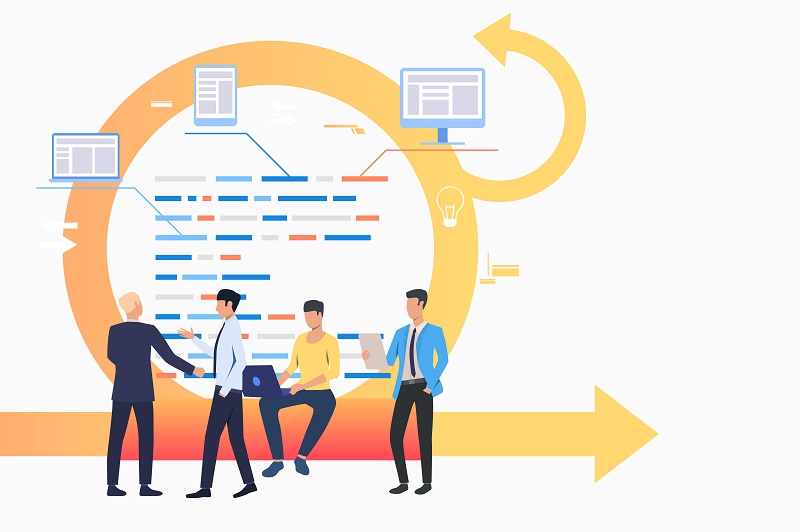
Lead generation is the backbone of business growth, helping companies attract and convert potential customers into loyal clients. However, the approach to lead generation varies significantly based on the target audience. Businesses that sell to other businesses (B2B) require a different strategy than those targeting individual consumers (B2C). Understanding these differences can help companies optimize their lead generation services and achieve better results.
What Is Lead Generation?
Lead generation is the process of identifying and nurturing potential customers who have shown interest in a product or service. It involves strategies such as content marketing, email campaigns, paid advertising, and social media engagement. The goal is to guide prospects through the sales funnel until they make a purchase.
While both B2B and B2C businesses rely on lead generation services, their approaches differ based on customer behavior, decision-making processes, and sales cycles.
Key Differences Between B2B and B2C Lead Generation
1. Target Audience
- B2B: Targets businesses, executives, and decision-makers who purchase products or services for their companies.
- B2C: Focuses on individual consumers looking for personal benefits and convenience.
B2B lead generation services must appeal to professionals who prioritize value, efficiency, and ROI, while B2C campaigns are designed to attract buyers through emotions, entertainment, and direct benefits.
2. Decision-Making Process
- B2B: A complex and rational process that involves multiple stakeholders, research, and approvals.
- B2C: A quicker, emotion-driven decision, often influenced by impulse, reviews, and brand perception.
B2B buyers typically take longer to make a purchase decision, as they must justify the investment. B2C consumers, on the other hand, often make decisions on the spot based on needs, desires, or promotional offers.
3. Sales Cycle Length
- B2B: Long sales cycles that can take weeks or months.
- B2C: Shorter sales cycles that may range from a few minutes to a few days.
B2B lead generation services focus on long-term relationship building, nurturing prospects through email marketing, webinars, and detailed product demonstrations. B2C marketing, however, often aims for immediate conversions through flash sales, discounts, and social media ads.
4. Lead Qualification Process
- B2B: Requires detailed lead scoring, segmentation, and engagement.
- B2C: Focuses on reaching a large audience with broad targeting.
B2B companies invest heavily in lead qualification strategies to ensure they are engaging with high-intent buyers. In contrast, B2C businesses cast a wider net, relying on volume and mass appeal.
5. Content and Marketing Approach
- B2B: Relies on educational, data-driven content such as whitepapers, case studies, and webinars.
- B2C: Uses emotional, entertaining, and visually appealing content like videos, influencer marketing, and user-generated content.
B2B lead generation services emphasize thought leadership and credibility, while B2C marketing focuses on storytelling and engagement.
6. Communication Channels
- B2B: Utilizes LinkedIn, industry blogs, professional networks, and email marketing.
- B2C: Leverages Facebook, Instagram, YouTube, and other social platforms with high engagement rates.
While B2B marketers use direct outreach and account-based marketing, B2C brands rely on viral campaigns and social media influencers.
7. Relationship Management
- B2B: Focuses on building long-term partnerships and repeat business.
- B2C: Encourages brand loyalty but often relies on one-time purchases.
B2B lead generation services prioritize relationship nurturing and high-value accounts, while B2C businesses aim for volume and customer retention through rewards and engagement.
How to Optimize Lead Generation for B2B and B2C
For B2B Businesses:
- Invest in Account-Based Marketing (ABM): Personalize marketing efforts for high-value prospects.
- Leverage LinkedIn & Email Marketing: Engage decision-makers through professional channels.
- Create High-Value Content: Offer whitepapers, industry reports, and case studies to establish credibility.
- Use CRM & Lead Scoring Tools: Track and prioritize leads effectively.
- Host Webinars & Networking Events: Build trust and authority in your industry.
For B2C Businesses:
- Use Social Media Advertising: Target consumers through Facebook, Instagram, and TikTok.
- Leverage Influencer Marketing: Collaborate with influencers to boost credibility and reach.
- Optimize Website & Landing Pages: Ensure easy navigation and seamless purchasing experiences.
- Run Promotional Campaigns: Offer discounts, flash sales, and referral programs.
- Focus on Customer Reviews & Testimonials: Encourage user-generated content to build trust.
Choosing the Right Lead Generation Services
Businesses must select lead generation services that align with their specific needs. Whether focusing on B2B or B2C, the key is to understand customer behavior and implement tailored strategies.
For B2B companies, working with agencies that specialize in LinkedIn outreach, email marketing, and ABM can yield better results. B2C brands, however, should collaborate with services that excel in social media advertising, content marketing, and customer engagement.
Final Thoughts
B2B and B2C lead generation differ in many aspects, from audience targeting to marketing strategies. While B2B lead generation services emphasize relationship-building and ROI-driven decisions, B2C lead generation focuses on quick conversions and broad appeal. Understanding these differences allows businesses to create more effective marketing strategies and achieve long-term success.
If you're looking to enhance your lead generation efforts, consider partnering with experts who understand the nuances of your industry and audience. Whether you're a B2B firm needing personalized outreach or a B2C brand aiming for viral engagement, the right lead generation services can help you maximize growth and revenue.
You Might Like Also

Root Cause Analysis Tool: Understanding the 5 Whys Method

DOT Return to Duty & Follow Up Drug Testing

La Mer Wholesale: A Premium Addition to Luxury Retail

















